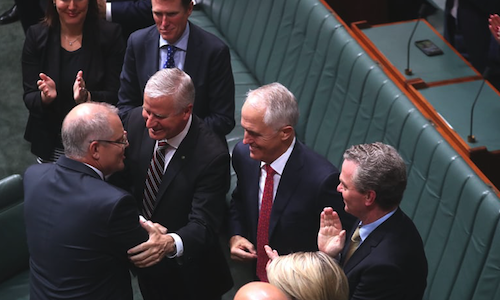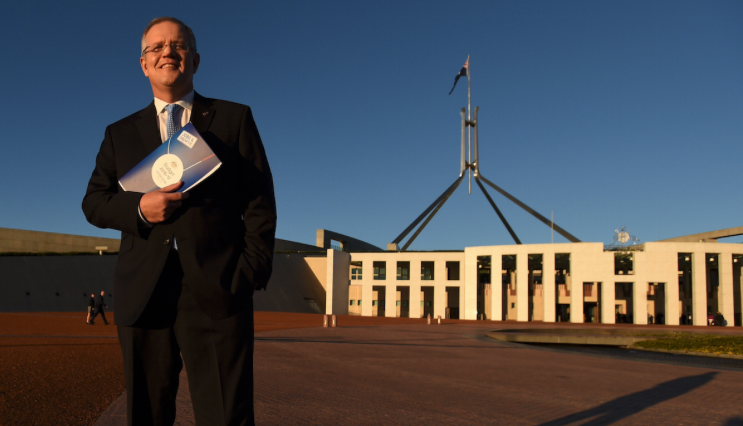Budget Roundup
Treasurer Scott Morrison unveiled the 2018-2019 last night. The plan was headlined by the promise of $140bn in tax cuts over the next decade, with immediate tax relief for middle and lower-income earners and a fundamental reform of the progressive tax system.

Treasurer Scott Morrison unveiled the 2018-2019 last night. The plan was headlined by the promise of $140bn in tax cuts over the next decade, with immediate tax relief for middle and lower-income earners and a fundamental reform of the progressive tax system.
Corporate entities will need to wait for the government’s existing 10-year tax plan to win parliamentary approval before they see any results.

"People on low and middle-incomes will get a tax cut before large businesses," Morrison said.
Here are the major takeaways:
Individuals
- From the 2019 financial year onwards until the 2022 financial year, middle and lower-income individuals will get a cash offset of up to $530 a year
- Personal tax thresholds changing with 19% bracket moving to $41k in 2022, 32.5% bracket moves to $90k in 2018, $120k in 2022 and $200k from 2024
Business Tax
- While the government remains committed to the 25% Company Tax Rate, that will not be delivered until 2026/2027
R&D Tax Incentive Changes
- The government is cutting A$2.4bn from its research and development tax incentive scheme.
- Introduction of a cap of A$4 million cap on the cash refund available to companies with annual turnover of less than A$20 million. This announcement is likely to be a great concern to startups who are in the non-revenue generating phase of their development
Small Businesses
- Extension of A$20,000 instant write-off for 12 months
- As part of the Ten Year Enterprise Plan, businesses with turnover less than A$50 million will have their tax rate cut to 27.5% from July 1, 2018
- The government has reduced the number of questions on the Business Activity Statement from 20 to 3
- The government is investing A$20 million in SME Export Hubs to “foster greater cooperation between Australian businesses, helping them grow to as they work together to sell their products to the world”
Fintech
- A$44.6 million over four years from 2018-2019 to help Australians more easily access and use their own data, with the banking sector the first Australian industry to be subject to this consumer right
- $700,000 for the Digital Transformation Agency to investigate areas where blockchain could offer “more value for government services”
- $100,000 to help promote Australia’s fintech sector to the world
Cash
- Government is clamping down on cash payments over $10,000 to businesses as of July 1, 2018. The measure is designed to clamp down on the ‘black economy’ but has the potential to drive fintech innovation through the increased use of electronic payment technology
Aged Care
- A$1.6bn investment in extra 14,000 high-level home care packages for Australians want to stay at home rather than going into residential aged care
Superannuation
- Super funds will be banned from charging exit fees to all customers
- Insurance arrangements will be offered on an opt-in basis for members with balances lower than A$6,000, members under the age of 25, an members whose accounts are considered ‘inactive’ (have not received contributions in 13 months)
With some clear winners and losers, this year’s budget is a bit of a mixed bag. With some calling it strictly political, the budget shows that the government is clearly looking to capitalise on its sudden and unexpected turnaround in revenue fortuntes.
Whether or not it will pay off for the Turnbull government remains to be seen.
For the latest international money transfer rates and market commentary, please visit Flash Payments.

